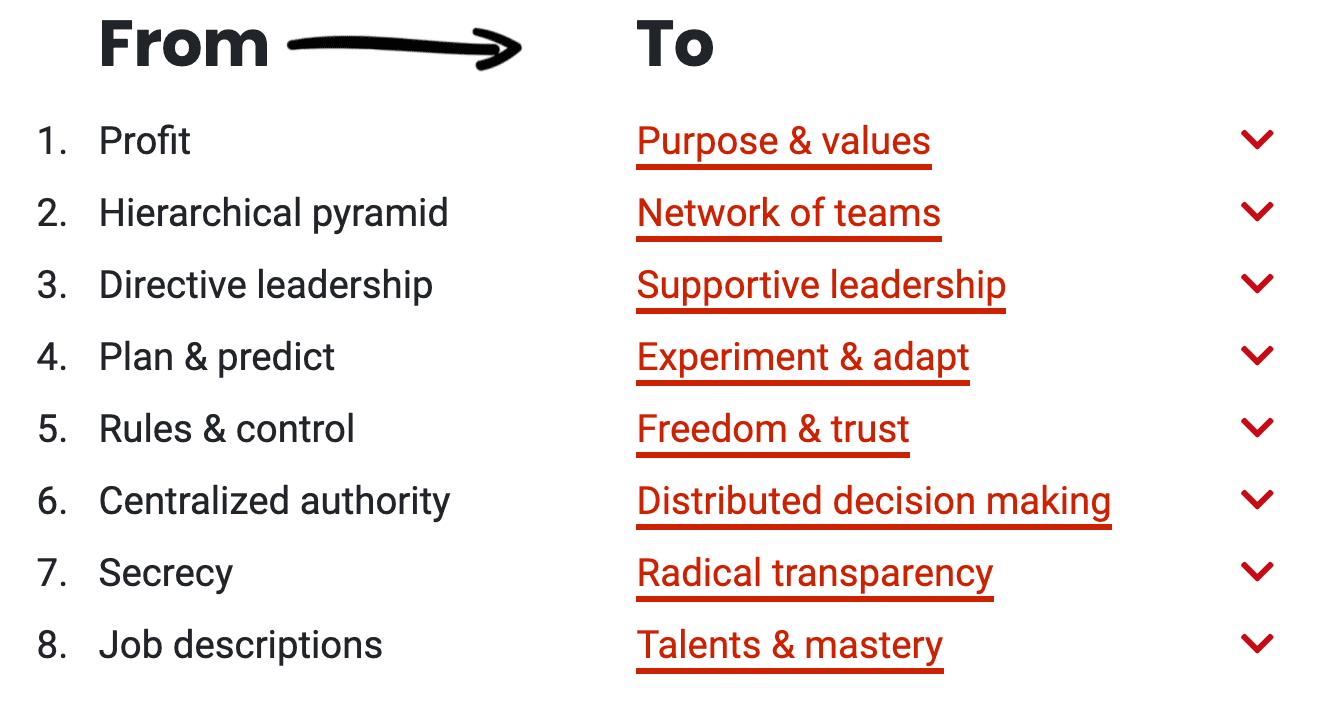Hello, and welcome to The Future of Work, a newsletter for people who want to change the Future of Work.
Ideas, thoughts and practices on how people and organisation can create a future where work is more fulfilling, humane and equitable.
I’m Leandro and in each edition I aim to bring you content to help you on your journey.
In this edition, I decided to write about the overarching topic of this publication. Why entrepreneurs should care about building a profitable, but at the same time, more humane, fulfilling and equitable organisations and what are the key elements you need to keep in mind when doing so.
What motivates us
In his best selling book - Drive: The surprising truth about what motivates us (Daniel Pink: Dec-2009), Daniel Pink argues that:
“The secret to high performance and satisfaction - at work, at school, and at home - is the deeply human need to direct our own lives, to learn and create new things, and to do better by ourselves and our world.”
He also examines the three elements of true motivation - autonomy, mastery, and purpose
Autonomy — Our desire to be self-directed. It increases engagement over compliance.
Mastery — The urge to get better skills.
Purpose — The desire to do something that has meaning and is important. Businesses that only focus on profits without valuing purpose will end up with poor customer service and unhappy employees.
Here is an explainer video about it.
Although there is a lot of theory and research on this topic, established companies are finding it really hard to engage and motivate their teams and employees (particularly in the COVID climate).
 |
It comes as no surprise that, according to the Gallup report - The State of the Global Workplace, only 13% of employees are engaged in their jobs.
This is staggering low, but not surprising.
Why this is happening
Douglas McGregor’sTheory X and Theory Y describe two views of people at work and may be used to describe two opposing management styles
Theory X assumes that people dislike work and must be coerced, controlled, and directed toward organizational goals. Furthermore, most people prefer to be treated this way, so they can avoid responsibility.
Theory Y - the integration of goals - emphasizes the average person’s intrinsic interest in his work, his desire to be self-directing and to seek responsibility, and his capacity to be creative in solving business problems.
Although we’ve been in the knowledge work era for quite some time, despite all the evidence and research, most of the organisations are still operating under management principles based on Theory X assumptions, which are clearly outdated for the current workforce.
Common practices such as shareholder value come first, companies organised in a hierarchical pyramid structure, managed by rules and control, secrecy by default, planning and prediction are still the default modus operandi.
I am not claiming or stating anything that people don’t already know here nor that I have answers to these ingrained problems that most of the organisation have been suffering from, but, I have a strong conviction, backed by evidence, that supports the case that there are ways out of this. However, it requires courage, it requires passion, it requires action.
The Passion Economy
Not surprisingly, I’ve been noticing a growing number of people leaving their current corporate jobs to pursue a more fulfilling and fun career where they can take/have control of their lives and the thing they are building.
To fulfil their motivations some choose to move from established organisation to startups, others decide to take the leap and go on their own and join The Maker Movement as it continues to grow and enables more people to be part of it
This is leading to the emergence of Passion Economy, where Makers can turn their creativity, skills and passion into something they can monetise, by selling it to a loyal audience they can build themselves.
In this article at Andreessen Horowitz (a16z) blog, Li Jin describes her views of The Passion Economy and the impact on Future of Work. I plan to explore this topic in future newsletters.
What can Makers do to create a better Future of Work
I like the way Joost & Pim from Corporate Rebels describe the differences between traditional and progressive organisations.
Below you can see the 8 trends they uncovered after visiting a considerable number of progressive organisations globally and also talking to their founders, CEOs and employees. These trends separate the most progressive workplaces from the traditional ones.
 |
While individual makers would normally start with a strong focus on the principles highlighted in the right column some will eventually end up falling into the default behaviours of traditional organisations (left column) as they grow.
So I urge Makers and Startups to really think about this as they grow to avoid creating a workplace environment that people are moving away from. The same place that a large portion of Makers, Startup founders left for the very same reason.
Right now this is still a choice you can make. But, I predict a future where this will be the new normal therefore the only way for organisations to survive.
Thank you for reading this edition of The Future of Work. If you’re finding this newsletter valuable, consider sharing it with friends, or subscribing if you haven’t already.
That’s it for now!
Get in touch on Twitter (@leandropinter) if you have any stories, feedback, or insights to share.
Some sources of inspiration for this newsletter:
https://en.wikipedia.org/wiki/Theory_X_and_Theory_Y
https://switcheducation.com/wp-content/uploads/2017/06/SEB_LYO_McGregor_Thinker.pdf
https://a16z.com/2019/10/08/passion-economy/
https://en.wikipedia.org/wiki/Knowledge_worker
Image sources: Corporate Rebels
Photo by: Unsplash

